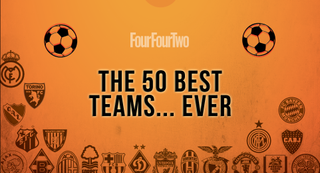England’s elite demonstrating true value of collectivism over stars – all except Mourinho
As Sergio Aguero and Jamie Vardy’s recent benchings have proved, nobody’s place is safe these days with a team’s best interests at heart. Alex Hess evaluates a growing trend...
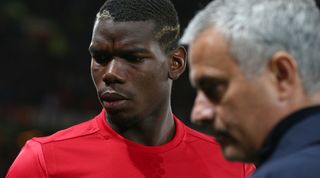
Individual vs collective, star vs team: it’s a constant tension within any side, and, more broadly, the source of so much of football’s appeal. Not least because there’s plenty of joy to be had from both: think of the singular ferocity with which Luis Suarez carried Liverpool to the brink of the title, or the murderously intense team spirit that has enabled Simeone’s Atletico Madrid to trade blows with Barcelona and Real Madrid.
Not for the first time this season, this tension was on show at Anfield on Saturday as a well-grooved Liverpool side put together a fine performance devoid of their star striker. Daniel Sturridge’s primary role as his side dispatched West Brom was to work on his unimpressed glower – something he’s been given plenty of opportunity to do of late and is coming along leaps and bounds.
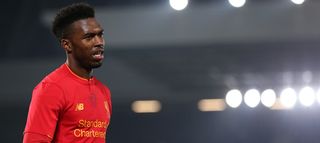
The next day, Paul Pogba was a spectator in a slightly more figurative sense (but only slightly) as his discordant Manchester United side were given a thrashing by a Chelsea team that carried no passengers. Pogba's situation was the inverse of Sturridge's – the uber-talented superstar picked to play; his team suffering as a result – but it demonstrated the same point: individual brilliance is all well and good, but collective cohesion counts for a hell of a lot more.
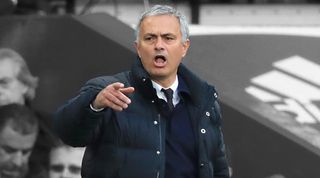
BACK OF THE NET Jose Mourinho claims credit for humiliating himself
Nobody’s safe
Sturridge may have cut a lonely figure Saturday evening but across the country he was in good company. A couple of hours earlier, Jamie Vardy, still fresh from last season's King Midas act, was also consigned to the bench as Shinji Okazaki, the archetypal selfless striker, scampered around in his stead. Cristhian Stuani and Abel Hernandez were top scorers for Middlesbrough and Hull respectively in last season’s promotion campaigns; neither were worth a place on the teamsheet on Saturday.
Similarly, Olivier Giroud was Arsenal’s top scorer last term but is yet to start a game this season, with the frenetic Alexis Sanchez firmly installed as first-choice striker. An identical situation is playing out on the other side of north London in Harry Kane’s absence, with a brawny targetman – in Spurs’ case, Vincent Janssen – unable to find a way into the side as a sprightlier and more versatile forward Son Heung-min provides the team’s spearhead.
Across town, Cesc Fabregas’s touch and vision once made him the type of talent to build a team around (indeed, Arsene Wenger spent half a decade doing exactly that); these days he can’t get a look-in at Chelsea, largely due to N’Golo Kante’s unrivalled capacity to bust his lungs for the cause. At Everton, Ross Barkley may be the jewel in his club's crown but he’s been in and out of the side under Ronald Koeman, who rarely misses an opportunity to reiterate the need for his playmaker to contribute off the ball as well as on it.
Get FourFourTwo Newsletter
The best features, fun and footballing quizzes, straight to your inbox every week.
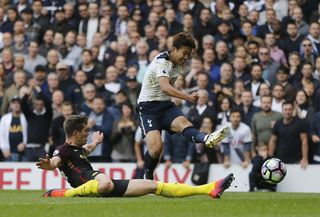
The most striking example of the phenomenon happened last Wednesday, when Manchester City’s most high-profile game of the season took place with Sergio Aguero gazing on from the sidelines. Years of trophy-winning heroics provided no safeguard from the self-sacrificing MO of Pep Guardiola.
The modern men
Cesc Fabregas’s touch and vision once made him the type of talent to build a team around; these days he can’t get a look-in at Chelsea due to N’Golo Kante’s unrivalled capacity to bust his lungs
Aguero, Sturridge & Co. could be forgiven for screaming into a pillow as they ponder how a proven capacity to win their team matches – previously footballing gold-dust – suddenly counts for nothing.
Not all these out-of-favour attackers are rampant individualists, but there is a common theme: all need their talents to be the focal point of the team, rather than vice versa. Their non-selections – invariably to make room for an energetic and multi-talented alternative – reflect a collectivism that is the hallmark of the Premier League’s new generation of coaches.
It's no coincidence that Jurgen Klopp, Mauricio Pochettino and Pep Guardiola have recently elected against picking a conventional goalscorer in favour of a fleet of tenacious scurriers. Those four, along with Koeman and Antonio Conte, make up the Premier League’s contingent of ultramodern managers, united in their dogma of dynamism.
For all these men, the tactical emphasis is on high pressing and hard running; players’ performance will be measured as much in blood, sweat and tears as in goals. And as Sturridge or Aguero will attest, no level of match-winning individual brilliance will be allowed to compromise the sanctity of the collective.
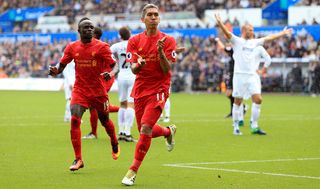
Their methods have not been lost on the old guard, either. Wenger's attack, once the preserve of languid luxuries like Henry, Pires and Bergkamp, is now built around the non-stop haranguing of Sanchez. Stoke’s upturn in fortunes has coincided directly with Mark Hughes shifting the buzzard-like Joe Allen into an advanced position, and the mercurial Bojan Krkic to the bench.
No way, Jose
It's no coincidence that Klopp, Pochettino and Guardiola have recently elected against picking a conventional goalscorer in favour of a fleet of tenacious scurriers
But not all the old guard are on board. It’s especially intriguing that this mass of non-selections should come in the same week that the whispers grow louder over whether Jose Mourinho's reactive tactics render him an anachronism in a sport increasingly dominated by front-foot coaches.
Mourinho's United are currently the exception to the above trend, their go-to XI finding room not only for Pogba but also the leisurely strollings of Zlatan Ibrahimovic, who, magnificent a player as he may be, wouldn’t get a game under Klopp, Conte or, erm, Guardiola.
Far be it for the manager who has willingly sapped the joie de vivre from creators such as Joe Cole, Juan Mata and Willian over the years to suddenly be flying the flag for freewheeling individualism. And as a certain England captain might tell you, Mourinho is hardly averse to dropping a star player if the situation demands it. But neither of these things quite captures the real point, which is the yawning gap between Mourinho’s system and the one now espoused by his elite-level peers.
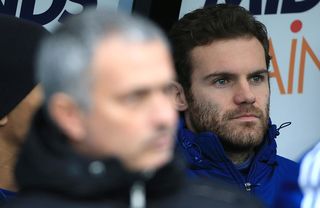
The mere suggestion that the Mourinho blueprint might be going stale is a sharp reminder of how quickly time passes in football. When he arrived in England in 2005, his Chelsea side – with its streetwise centre-back pairing, lightning wingers and powerhouse centre-forward – was terrifyingly futuristic. That Chelsea promptly won the league by 12 points, conceding just 15 goals all season, was testament to their manager’s swaggering modernism.
New dawn, new day
Ferguson put his longevity down to 'eating the right food and drinking the right wine', but his capacity to exist in a constant state of forward-thinking renovation might have played a part too
But times change – remember being blown away by the found-footage format of The Blair Witch Project, or the slo-mo shootouts in The Matrix? In the same vein, the years since Mourinho’s arrival have seen a slew of copycats: one up front became standard, counter-attacking all the rage and the ‘Makelele role’ went mainstream. It doesn’t take long for radical to become run of the mill.
Which isn't to say Mourinho’s methods are suddenly redundant; winning a football game will always be akin to skinning a cat. But as the landscape shifts, some methods become more effective than others.
Mourinho need only look to a certain predecessor to recognise the importance of reinvention. Alex Ferguson's early sides were, in accordance with the United myth, founded on urgent attacking and high-octane wingplay. But the later incarnations of Ferguson's United (which corresponded, funnily enough, with Mourinho’s arrival in England) placed the emphasis on streetwise centre-backs, lightning counter-attacks and a forward, in Cristiano Ronaldo, who ended his time at United resembling Didier Drogba far more than he did Ryan Giggs.
Contrast this with his contemporary Kenny Dalglish, whose two-wingers-and-a-targetman setup worked wonders with Blackburn in the ‘90s, but was pedestrian and archaic when he revived it with Liverpool two decades later.
Ferguson may have put his longevity down to “eating the right food and drinking the right wine”, but his capacity to exist in a constant state of forward-thinking renovation might have played a part, too.
Mourinho, with a collection of medals that speaks for itself, may argue that his methods are about as tried and tested as can be. But for a manager whose relationship with longevity has always been tricky, a refusal to move with the times may not be the smartest way to secure a legacy.

Thank you for reading 5 articles this month* Join now for unlimited access
Enjoy your first month for just £1 / $1 / €1
*Read 5 free articles per month without a subscription

Join now for unlimited access
Try first month for just £1 / $1 / €1
